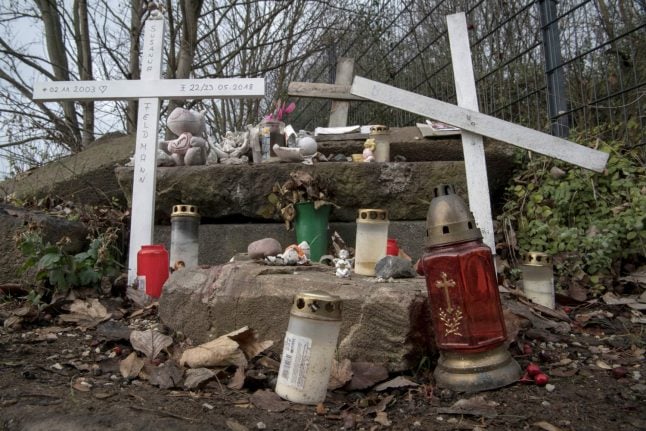The accused, who is known as Ali B. under German law, left Germany for northern Iraq shortly after the May 2018 crime but was brought back in a mission joined personally by federal police chief Dieter Romann.
SEE ALSO: Iraqi charged with rape, murder in Germany's 'Susanna' case
The 22-year-old's trial for the rape-murder of 14-year-old schoolgirl Susanna F. started under tight security at 9.30am in the city of Wiesbaden, Hesse, where the crime took place.
Around a dozen people held a vigil for the victim outside the courthouse.
The suspect has admitted the killing to police interrogators but denied the rape, meaning he already faces a likely life prison term, which in Germany usually translates to 15 years behind bars.
To Germany's far right, the alleged killer, who is also accused of raping an 11-year-old girl in a separate case, has become a symbol of the threat allegedly posed by the wave of newcomers.
Before the trial, the anti-Islam Alternative for Germany (AfD) party again blamed Chancellor Angela Merkel and her grand coalition or “GroKo” government for Susanna's death.
“The problem isn't 'the right' but the knife-man immigration caused by the GroKo that has caused ever more bloody crimes,” the party wrote in a Facebook post.
The AfD became the biggest opposition party when it entered parliament in late 2017, riding a wave of public anger over sexual assaults and other violent crimes committed by some recent migrants.
In another case last year, the fatal stabbing of a German man in the eastern city of Chemnitz, allegedly by immigrants, sparked outbursts of mob violence in which far-right extremists hunted people of foreign appearance through the streets.
SEE ALSO: Refugees still welcome? How one girl's murder is dividing Germany
Shallow grave
B., along with his parents and five siblings, first arrived in Germany in 2015, the year that saw the peak of the migrant influx which would bring more than one million people to Europe's top economy.
His request for asylum was rejected in December 2016, but — in a case critics label as symptomatic of an overwhelmed and dysfunctional system — he obtained a temporary residence permit pending his appeal.
Merkel later conceded in a TV interview that “the case shows how important it is that people who don't have residency rights quickly face a court and can be speedily sent back home”.
In May last year, B. allegedly beat, raped and strangled Susanna to death in a wooded area near his refugee shelter in Wiesbaden.
Her body was then buried in a shallow grave covered with leaves, twigs and soil.
When her remains were found two weeks later, B. and his family had left Germany for Arbil, northern Iraq.
However following a public outcry, he was arrested by Kurdish security forces and German federal police hauled the suspect back from Iraq.
Despite the absence of a formal extradition treaty between Iraq and Germany, B. was put on a flight to Germany, with pictures of him disembarking under heavy police guard making front pages.
B. also faces charges for a park robbery in which he allegedly beat, strangled and threatened a man with a knife to steal his watch, bag, phone and bank card.
He faces a separate trial from March 19, accused of having twice raped an 11-year-old girl — once in April 2018 after locking her in his room, and again near a supermarket car park the following month.
More suspects
Prosecutors have also laid charges against an Afghan youth who was living in the same refugee shelter, Mansoor Q., who was believed to be aged at least 14 at the time, for also raping the 11-year-old girl.
And prosecutors have said B.'s younger brother — who is believed to be in Iraq, according to media reports — also took part in a violent sexual assault against the younger girl.



 Please whitelist us to continue reading.
Please whitelist us to continue reading.
Member comments